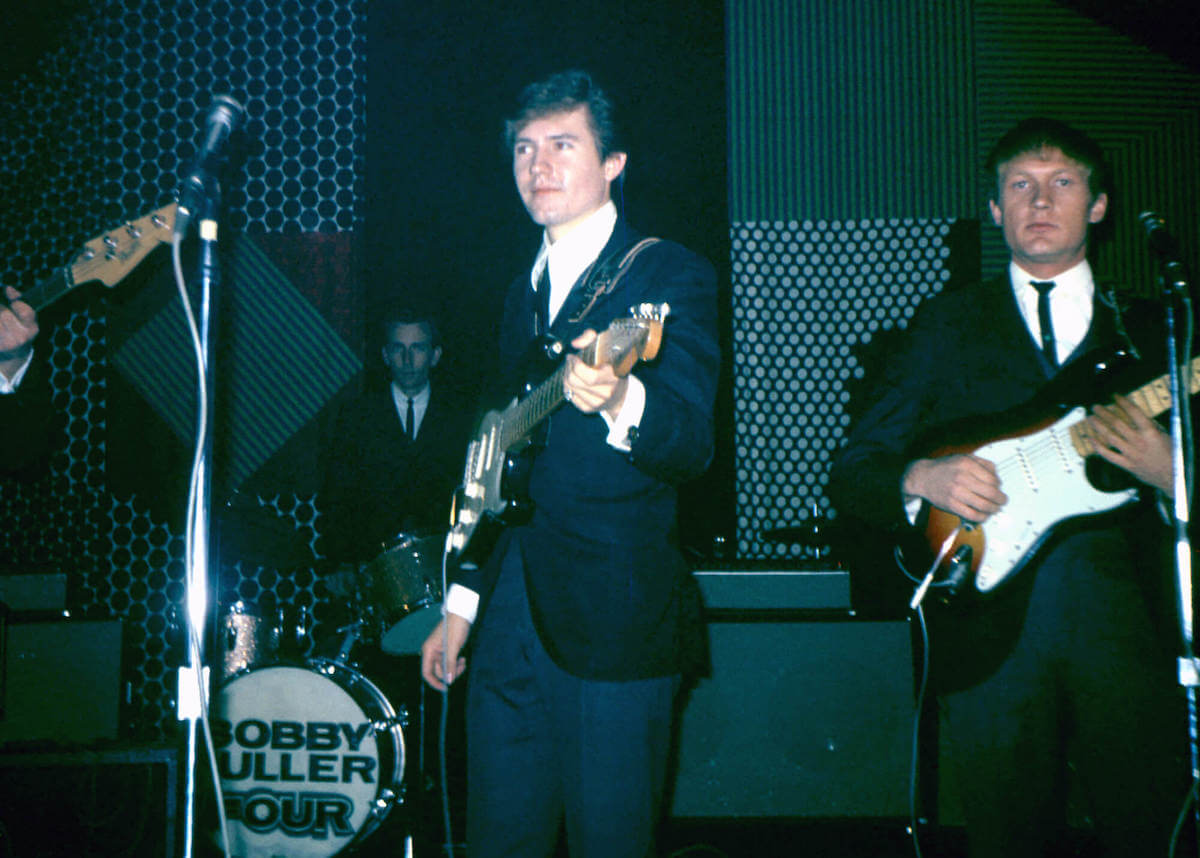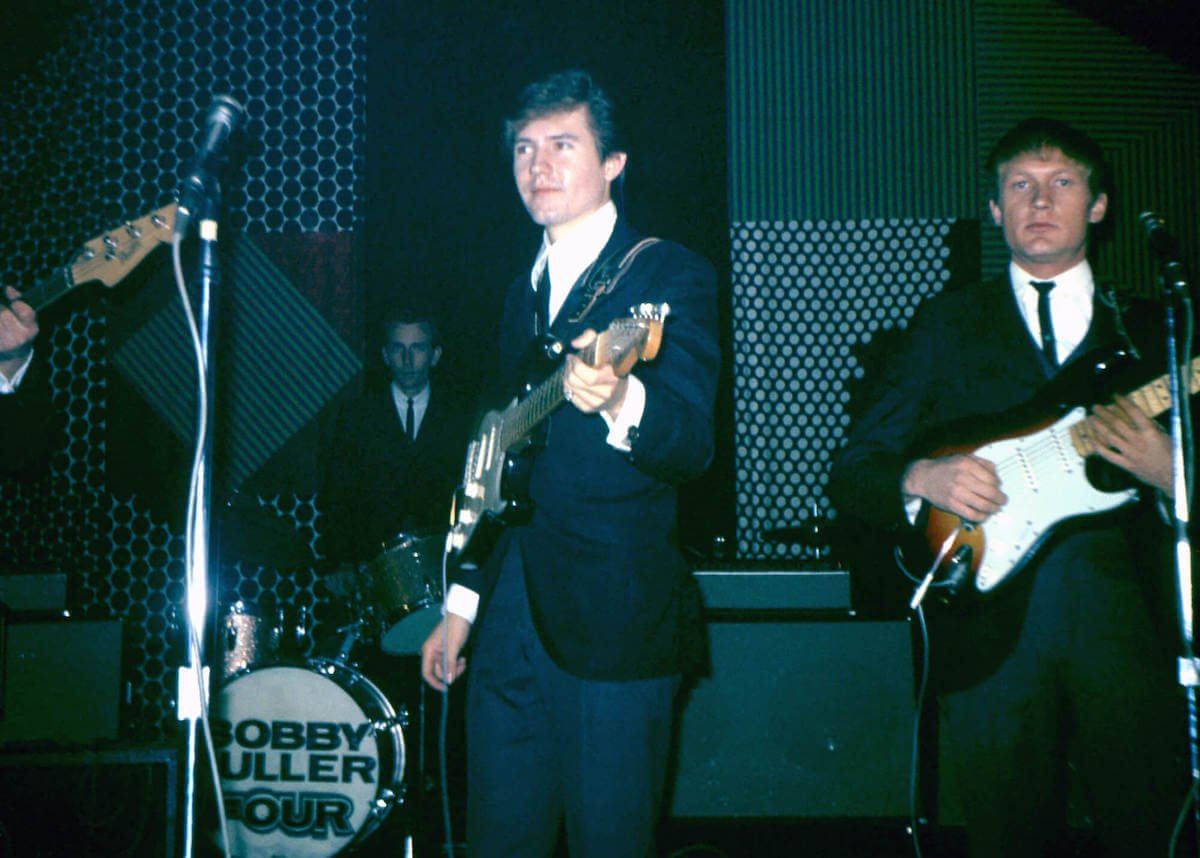
Bobby Fuller’s Bandmates Have a Theory About His Mysterious Death
Bobby Fuller was a brilliant musical talent, but his artistic legacy is as much about what could’ve been as it is about what he accomplished in his far too short life. He was a burgeoning rock and roll star on a chart-topping trajectory before he died at the age of 23 in mysterious circumstances.
Fuller’s death was officially ruled to be a suicide, but the strange details in the case compel some friends and family to believe in various conspiracy theories to rationalize the tragedy.

Some fans theorize that he was murdered
Everything changed on July 18, 1966. That was the day Fuller was found dead in his mother’s car outside of his Hollywood apartment.
His cold hands held a plastic hose leading to a can of gasoline in the car. The weirdest part is that Fuller’s body was in an advanced state of rigor mortis even though the car was only in the parking lot for 30 minutes before Mrs. Fuller found it, suggesting that someone moved the body after the singer died. Despite these facts, the police decided not to brush for fingerprints or interview anyone about the case and initially deemed it a suicide. (The death was later changed to an accident.)
Many people refused to believe the official ruling. Some pointed the finger at Keane because this was the third artist he worked with (Valens and Sam Cooke) whose sudden deaths were similarly shocking. Other theories were more out there. Fuller’s bandmate Jim Reese alleged that Charles Manson had something to do with it, even though Manson was in prison at the time.
A rumored fling with the girlfriend of a nightclub owner with mob ties and a bad LSD trip was also blamed for Fuller’s death. The lack of legal investigation into the case made it nearly impossible for the truth to be uncovered. There was nothing to do but mourn the loss of a brother, son, and potential icon.
Fuller’s bandmates believe his death was a tragic accident
As much as people enjoy the perverse speculation over what happened to Fuller, the most likely scenario is that he was the victim of scare tactics gone awry. Writer Miriam Linna wrote about the singer’s life, and legacy in the 2015 book I Fought The Law: The Life and Strange Death of Bobby Fuller with contributions from Randy Fuller, Bobby’s younger sibling and bass player for the Bobby Fuller Four.
In it, Linna discusses the potential criminal influence of Morris Levy on Fuller’s life. Levy was the owner of Roulette Records. He was known as the “Godfather of the American music business” for his reported connections to east coast organized crime members in the Gambino, Genovese, and DeCavalcante crime families.
The final Bobby Fuller Four single, “The Magic Touch,” was written by a Roulette songwriter, and given Fuller’s issues with Keane, you can imagine the tension in their relationship. Levy was later convicted of extortion for his work with these organizations in 1990, but he died before he went to jail.
Linna and Randy theorize that Bobby was the subject of intimidation after attempting to get out of a business contract, but things went too far, and the singer died. (Linna also talked about this possibility on an episode of the Criminal podcast around the 35:00 mark.) Linna believes the fact that Fuller left the house wearing slippers indicates that he was going to meet someone he knew.
We’ll never know what exactly Fuller had in store for the rest of his career, but everyone who experienced him at the moment felt that he was on the verge of something massive. The Bobby Fuller Four was scheduled to tour the UK when the frontman died, and Linna is convinced that those concerts could’ve altered the course of music history.
“If that had happened, I honestly believe today’s music scene would be vastly different,” she said. “[Fuller] would have represented the second coming of Buddy Holly, who eight years earlier had toured Britain, inspiring everyone from the fledgling Beatles to those guys who ended up being in a band called The Rolling Stones.”
Fuller looked set for a hit-laden career
The Beatles-led “British Invasion” was a landmark moment in the evolution of American music in the 1960s. But in a less tragic timeline, there was a domestic artist that synthesized influences closer to home and created a sound that could rival Beatlemania for popularity.
Bobby Fuller’s music was entirely the product of American culture. As explained in The Guardian, Fuller loved rock forebearers like Buddy Holly, Ritchie Valens, and Eddie Cochran. He incorporated his appreciation of Everly Brothers’ harmonies, surf guitar, and garage rock fuzz into his brand of music. Fuller’s favorite performers and southern upbringing (he grew up in El Paso, Texas) allowed Fuller to tap into US mythology and obsessions to create beloved songs.
His most well-known song is “I Fought The Law,” which peaked at ninth place on the Billboard top 100 in 1966. The song was written by Sonny Curtis and first performed by The Crickets in 1960, but the energy of Fuller’s version caught the ears of audiences at the time and the many artists (The Clash, Bruce Springsteen, Tom Petty) who have covered the song since. Fuller also wrote catchy songs about young love and loss, such as “Let Her Dance” and “Love’s Made a Fool of You.”
His gifts were apparent before he received national attention. As a 19-year-old in 1961, Fuller built a studio, control booth, and echo chamber in his parent’s house and started two labels to release his music independently. In 1964, Fuller opened a teen club in El Paso inspired by Dick Dale’s Rendezvous Ballroom (his was also called the Rendezvous), where his band, then known as the Fanatics, was the house band.
The club became a real hotspot for local kids before Fuller and his band moved to California to advance their careers. They signed with Del-Fi Records, whose owner Bob Keane renamed them the Bobby Fuller Four. The success of their early singles set them on a course for stardom.
Still, the relationship deteriorated as Keane attempted to market Fuller separately from the band, and Fuller himself got tired of the nonstop tour schedule. But the further fame of the group and its frontman seemed inevitable in the near future.


